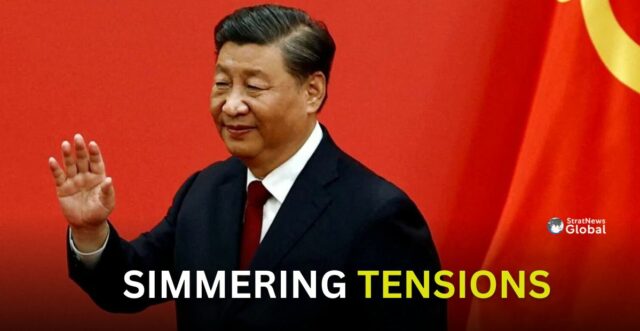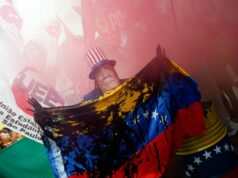Tensions between China and India have long simmered over territorial disputes and historical grievances, but Tibet remains one of the most sensitive flashpoints in this uneasy relationship. The center of this tension is the presence of the Dalai Lama in India, which continues to provoke strong reactions from Beijing.
However China’s frustration today goes far beyond symbolic gestures or diplomatic statements; it is deeply tied to the country’s domestic challenges and the broader unraveling of the global political order.
“China is quite mad at India and His Holiness Dalai Lama,” says Dr. Ming Xia, Professor of Political Science at the City University of New York.
Domestically, China faces bigger problems of growing local government debt, and rising youth unemployment.
“The Chinese economy is making a very difficult situation for Xi Jinping to face,” Dr. Xia noted. Key sectors, particularly real estate, are collapsing, with major developers like Evergrande and Country Garden facing a severe financial crisis.
Amidst this, Tibet and the Dalai Lama’s global recognition pose a critical problem for Xi Jinping. As 2027 draws near and potentially the end of Xi’s third term, the pressure to project national unity and strength is increasing.
That unification effort includes an ideological campaign led by Xi’s close ally Wang Huning. Wang, who heads the United Front Work Department, has introduced the concept of a “Great United Front” to consolidate control over ethnic minorities, overseas Chinese, and dissenting voices. For Tibetans, this means tighter surveillance, reduced religious freedoms, and a broader campaign to erode the Dalai Lama’s influence.
India plays a crucial role in this dynamic. By hosting the Dalai Lama and supporting Tibetan exiles, New Delhi is viewed by Beijing not just as offering refuge to a political opponent, but as challenging China’s internal unity.
Tibet remains more than a cultural or spiritual issue for China. It is a symbol of unresolved control, and the Dalai Lama represents a challenge to Xi’s vision of a tightly unified, ideologically disciplined China. As Xi Jinping tightens his grip on power while facing growing problems at home, Tibet is likely to stay a key point of conflict between China and India.





